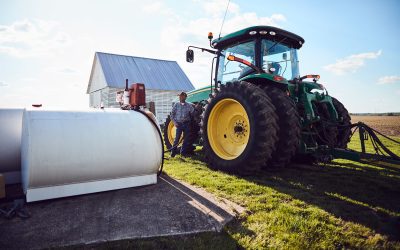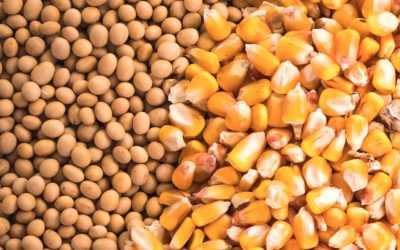Purdue professor campaigns for research funding in 2023 Farm Bill
Posted: March 20, 2023
Category: Indiana Corn and Soybean Post - Winter 2023, ISA, News
Corn and soybean yields have expanded by bushels and bushels in the last 30 years. Much of expansion of production is due to university research that started more than 30 years ago. That message, and more, was the focus of a Purdue University professor’s remarks during a Senate Ag Committee meeting in December about 2023 Farm Bill spending.
Dr. Katy Martin Rainey is an associate professor of agronomy at Purdue and the director of the Purdue Soybean Center. Representing Purdue and the American Seed Trade Association, Rainey told the U.S. senators on the committee that research funding is essential to increased production.
“Breeding and distributing the best seeds and other stocks is integral to U.S. farm productivity and food security, requiring substantial investments in (research and development),” she explained. “Agriculture research through public-private partnerships, including seed companies, universities and federal research entities, is foundational to crop improvement, and to U.S. farmers’ access to the best varieties and hybrids.”
Rainey specializes in soybean genetics and plant breeding. She believes that is where advancements in agriculture begins.
“Efficient and productive agriculture systems all start with seed,” Rainey said. “Strong investments in research from discovery through development lead to better seed, which means better outcomes for our farmers, our consumers, our land and our environment in the short and long-term.”
She said public-private research has been producing positive results for American farmers for years.
“My colleagues working on soybeans provide a perfect example of public-private cooperation on federally funded outputs to benefit consumers,” Rainey said. “A USDA geneticist at the Plant Genetics Research Unit in Columbia, Mo. discovered soybean mutants that produce healthier oil, and then collaborated with a University of
Missouri soybean breeder to develop new varieties with funding from commodity organizations, the university and the USDA. Today, the ag tech company Benson Hill has a vertically integrated program working with farmers to produce and sell the healthier oil, known as Veri brand soybean oil, which is offsetting global deficits in
the availability of sunflower oil due to the war in Ukraine.”
Rainey suggested that American farmers could lose their competitive advantage on the world market if government funding of research does not increase.
“While there are many competing needs in the farm bill, we must prioritize a robust investment in ag research,” she said. “Over the past decade, other countries have rapidly expanded investment in public agriculture research, threatening U.S. competitiveness.”
Rainey added that government entities play a key role in crop advancement.
“USDA’s Agricultural Research Service (ARS) leverages long-term investments for high-impact payoffs,” Rainey said. “Its management and utilization of vast collections of genetic resources is the type of research that can’t be done by an individual university or company. A great example of utilization of the National Plant Germplasm System is the Germplasm Enhancement of Maize project at ARS, which focuses on identifying useful genetic diversity in exotic germplasm for commercial use in developing new hybrids in the U.S.”
She added that her work and Purdue have both benefited from federal funding in research, and she provided some examples.

“Another key initiative, and one I’m passionate about given my role with Purdue University, is land-grant capacity funds, and funding for non-land grant colleges of agriculture,” Rainey said.
“Capacity funds through the Farm Bill allow land-grant universities, like Purdue, to invest in infrastructure and people for cutting-edge research that has a direct impact on farmers in our states and beyond, and these capacity funds allow us to respond quickly to emerging issues.”
Sen. Braun interviews Rainey
Sen. Mike Braun (R-Ind.) is a member of the Senate Ag Committee and spoke with Rainey before and during the farm bill hearing.
“Dr. Rainey, we had a nice conversation earlier today, and we focused on a couple of things,” Braun said. “One was the increasing anxiety among farmers going through a year like 2022. Many farmers indicated to me a concern
about rising input costs. One farmer called from a combine in a county just south of where I live, and he just made it through all of that uncertainty. He, and others, have expressed that they are worried about 2023. I think it could be a tougher scenario for many farmers to get the 2023 (planted) with all of the inputs they need.”
Braun said he is focused on making sure that Hoosier farmers have the tools they need to continue to produce bountiful crops. He said crop insurance and funding to react to livestock disease outbreaks, in addition to research funding, are his spending priorities in the farm bill.




